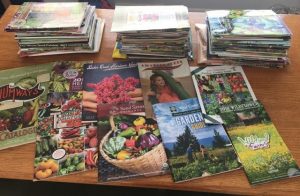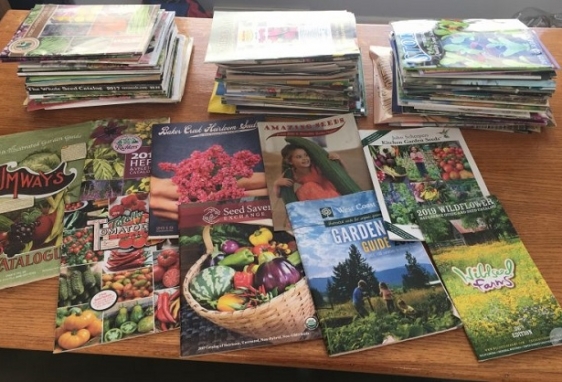
Before those catalogs start filling your head with sugar plum fantasies, here’s two seed buying tips to be sure you get the most out of your seed budget.
First, develop a No-Grow list. The pro’s learned long ago to resist seed varieties bred to be talking points. Wally knows how hard it is to resist the catalog marketing copy. Seed catalogs arrive full of new varieties with scrumptious photos, mouth-watering descriptions and the promise of a fresh start and abundant yields. What is important for farmers, though, is a crop’s business potential. To avoid temptation, he maintains a list of crops he should not grow, along with the reason, and keeps it at the front of every catalog and taped to his computer, to avoid temptation. Here is his list, developed over years of hard-won battles with himself:
Wally’s Seed Buying No-grow List
– arugula ( pest issues )
– all brassicas ( pest issues )
– eggplant ( low yields/poor marketability )
– melons ( low yields/poor marketability )
– peas ( poor profitability )
– summer squash ( poor marketability )
– tomatoes ( poor marketability )
– turnips/rutabaga ( pest issues )
Second, set aside a pre-determined amount of “mad money.” Luring growers to blow money on new crops they’d otherwise never think of is the seed marketers bread and butter. But getting overweight in niche crops is risky business. To further curb his seed-buying enthusiasm, Wally decides how much of a test planting he can afford to do. Then, he puts aside a “mad money” line item in his seed budget to cover it, and orders those test crops last. That way he isn’t forced to shortchange on seeds for the crops that pay the bills, and he doesn’t overspend.
Buying seed for business requires more than just impulse control. Every purchase should start by answering the question, “Why grow this crop?” While seed catalogs have lots of information, none of it is useful in determining the business potential of a crop. Take squash, as an example. 4 online pages and 69 varieties to choose from. Wally can narrow it down to 2 cropping strategies, 12 varieties, $95 total seed cost, $8k revenue potential. He’s collected all the strategies and data points he uses to do that in the Grow Your Way to $100k which teaches you how to grow a business along with all those seeds.


